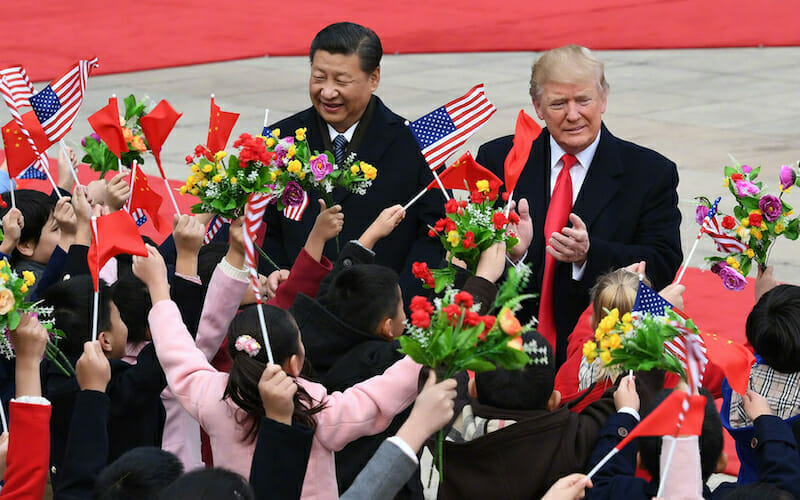
Culture: The Hidden Aspect That Sets Countries Apart
Lately, the relationship between the United States and China has been among the top 10 most newsworthy topics due to the escalating trade war rhetoric between the two. While the escalating rhetoric has mainly been driven by economic rationale, the economic conflict between the two countries has a hidden cultural aspect. China and the U.S. clash in the way they live, communicate and relate to one another, resulting in the core of the conflict.
International relations scholar, Samuel Huntington, foresaw the rise of cultural conflicts when he wrote “The Clash of Civilizations?” back in the 1990’s. Huntington’s argument was a response to Fukuyama’s theory in “The End of History,” in which the universalization of Western liberal democracy is the final form of human government. In contrast to Fukuyama, Huntington’s theory emphasizes cultural differences. The world was divided into eight distinct cultural groups characterized by distinct cultural characterizations: Confucian, Japanese, Hindu, Islamic, Orthodox, Western, Latin American and African. Huntington’s thesis was that culture shapes the patterns of conflict, the way nations come together, or how they break apart. This meant that the most significant distinctions among people are not ideological, political, or economic but cultural.
Chinese collectivist culture accentuates teamwork, family and group goals above individual needs or desires. Opposed to that, the U.S. values individual achievements. For Americans, freedom of choice, personal autonomy, and self-fulfillment are signs of independence. Thus, if you achieve something, it is because of you. In China, people enjoy spending time in groups. Wherever there is a park, there will be a group of people together, either dancing, singing, or practicing sports. It is rooted in their culture. Besides, Chinese people take care of the elderly. Younger live with elderly and treat them with enormous respect and admiration. Chinese collectivism is so strong that wherever they migrate, they will always strengthen bonds with other Chinese. In all major cities in the world, you will find Chinatown streets and districts, where Chinese speak their language, share their customs and habits. That being said, Chinese from both private and public sectors will fight back “at any cost” against further trade action.
Chinese communication differs from the U.S. Chinese normally do not look or stare at people they are talking to. Eye contact is not considered essential to social interaction, instead, it is often considered inappropriate. Too much eye contact can be interpreted as a sign of disrespect. Whereas Americans use eye contact and direct communication. They are very straightforward, time is money and they do not have time to waste because after all, there is no free lunch in Uncle Sam’s country. It is also important to think before you speak with the Chinese because this denotes respect and appreciation.
The Chinese communication style is indirect, while American is very direct. Chinese analyze the verbal and non-verbal communication signs. They interpret all the messages that are not explicit. Americans focus only on verbal communication missing the signs. Chinese President Xi Jinping has seen both the verbal and non-verbal communication from the current U.S. administration, although Chinese censorship has blocked Twitter, Facebook, and YouTube since 2016. In response to the U.S. trade attacks, China has been effective and fast. Under China’s burgeoning communication skills, the U.S. should rethink its ways of improving its communications more effectively and focus on the long-lasting.
Chinese negotiating style is anthologized from the American. Chinese gives great importance to the relationships. Furthermore, if you are negotiating with them, first you need to socialize. Colleagues and business contacts tend to socialize, building upon relationships and trust, which is essential before doing business with the Chinese. For them, business is a consequence of the relationship.
On the other hand, Americans would rather keep their work and personal lives separate, so they are less likely to socialize with their colleagues outside work. Although happy hours are part of American life, Americans tend to socialize more with friends. When negotiating Americans give little attention to relationships, they underscore more the ends more than the means, highlighting the results and not the process. Emotions, relationships, and optimism are not on the table. Although opposed to the current U.S. president, Xi would never jeopardize the U.S.-China relationship. Even though both administrations consider that they are defending their people and their national interests, for China relationships matter. The United States needs to come to terms with the great strategic questions of our time: is China an enemy or a friend? Henry Kissinger, American diplomat would have answered this question saying that “America has no permanent friends or enemies, only interests.”
In short, the cultural asymmetries can accelerate the current trade war between the U.S. and China. These differences do not make either culture better or worse, only distinctive. Huntington is correct when he says that Western hegemony is flawed. Additionally, the United States translates what Huntington considers to be the Western civilization when it tries to impose its values on other countries, without taking into consideration their own cultures. On top of that, the U.S. is more concerned about keeping its hegemon, than cooperating with other countries, merging forces and becoming stronger.
For the success of the U.S.-China relationship, there are certain things that need attention. First, the United States needs to rejuvenate itself in the same way that China has. Second, the U.S. needs to work in cooperation with China, as equal partners. Third and last, the U.S. needs to learn from its mistakes, the way China has been doing for the past 100 years. I hope that China and the U.S. can find mutual understanding based on common interests. If not, the tensions in the U.S.-China relationship based on their cultural differences will intensify and threaten the world order. The preservation of the U.S.-China relationship depends on that. The outcome of this clash of cultures and self-images is important. Besides, the hard and soft power confrontation between the U.S. and China has all the makings of a global trade war where both countries seem to be willing to fight tooth and nail to dominate and shape the international order. A clash may be inevitable.
